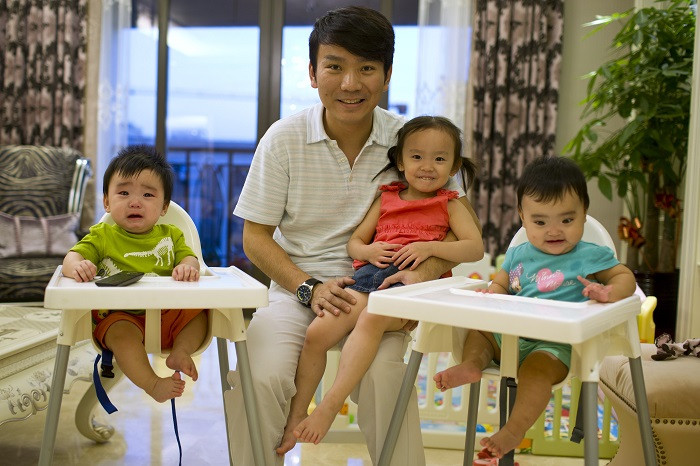China Relaxes One-Child Policy After 30 Years

China's top legislature has decided to reform the country's one-child policy for the first time in 30 years.
The Standing Committee of the National People's Congress - China's rubber-stamp parliament - on Saturday passed a resolution to allow couples to have two children if either parent is an only child, according to Xinhua, the state news agency.
The change in policy has been introduced in a bid to raise fertility rates and tackle China's gender imbalance. By 2020, demographers say China will have 24 million "leftover men" who will not be able to find a wife.
The one-child policy was introduced in 1980 to curb rapid population growth. A second child was only allowed if neither parent had siblings or if the first born to a rural couple was a girl. China argues the policy supported the country's rapid development from mass poverty to the world's second-largest economy.
But it has become increasingly unpopular with leaders fearing the country's ageing population and shrinking workforce.
The traditional preference for boys has also created a gender imbalance as many couples opt for sex-selective abortions.The public was outraged last year when photos circulated online of a woman forced to abort her baby seven months into her pregnancy.
The congress decision followed the ruling Communist Party's desire for policy reform at its Third Plenum meeting last month. Legislative approval was formally required to put them into effect.
It is expected that reforms will be rolled out gradually around the country, by the provincial authorities and their standing committee, according to the local demographic situation.
In addition, under the new reforms labour camps will be abolished.
China began re-education through labour in 1957 to deal with petty offenders. But the system allowing a police panel to issue sentences of up to four years without trial was soon abused.
It now closes the curtain on a dark aspect of the country's modern history long criticised by human rights groups and which Chinese authorities admit is no longer viable.
© Copyright IBTimes 2025. All rights reserved.






















